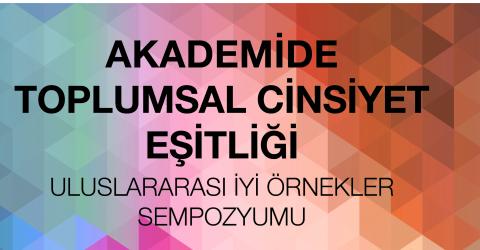12/11/2014
In celebration of the centenary of women gaining the right to university education in Turkey, Sabancı University Gender and Women’s Studies Forum in association with the Women’s Museum of Istanbul held the Gender Equality in Academia: International Best Practices Symposium between November 6th and 8th, 2014 at the Karaköy Minerva Palas to discuss policies, programs and best practices for gender equality in universities on an international level.
The Gender Equality in Academia: International Best Practices Symposium discussed programs, strategic concepts and successful practices developed in universities in Italy, Austria, Germany, Switzerland, Norway, UK, Sweden, France and the United States to ensure gender equality and to make diversity a university policy. The Turkish examples of gender equality programs implemented in Ankara University, Istanbul Technical University and Sabancı University were examined. Concepts developed by the foreign counterparts of TÜBİTAK to ensure gender equality in academia were studied.
The opening message of the symposium was prepared by political scientist Şirin Tekeli, who is a leading activist of the second-wave feminist movement in Turkey in the late 1980s, and delivered by Sabancı University Faculty of Arts and Social Sciences Member Ayşe Gül Altınay on her behalf.
The closing lecture was given by anthropologist Emily Martin from New York University. Speaking on Sexist Language in Biological Sciences: A Look at the Past and Future, Emily Martin said that no one cared if the female body was being perceived as a part of a production system. Martin drew attention to the fact that different language is used when discussing female and male reproductive systems, saying, “There are striking differences in men’s versions compared to women’s versions.” Discussing the representation of the human body and diseases as well as its connection to gender, Martin said she studied how nature is represented in biology at times when HIV escalated into an epidemic. Emily Martin noted that some narratives on the immune system utilized the Fordist manufacturing model, saying that the perception about women carrying immunological diseases and being disadvantaged is high.
As part of the symposium, an exhibition titled “100 Years of Women in University - İnas Darülfünunu / Women’s University 1914 – 1919” will be available for viewing between November 7th and December 21st at the Consulate General of Greece - Sismanoglio Megaro.





